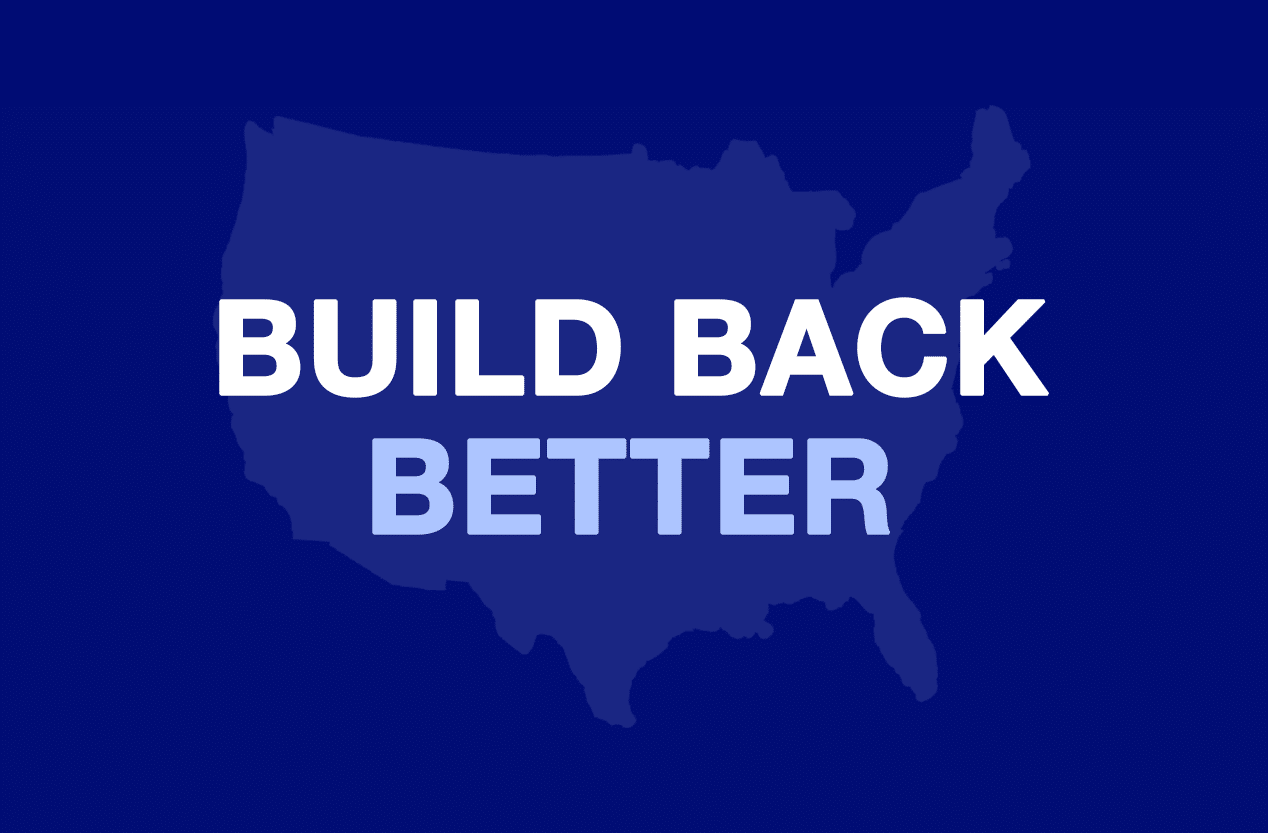The details of the Biden administration’s scaled-back budget bill titled the “Build Back Better Act” are out after several months of negotiations among Democratic lawmakers. Although there is a great deal out of the bill, such as Medicare coverage for dental and vision, the good news for elder care advocates is the $150 billion dedicated to Medicaid home and community services, along with regulations leading to a federally required nursing home staffing standard. Also, the bill does not include any estate tax changes. There is much more in the bill (or out of the bill, depending on your perspective). You can read the full bill by clicking here and see below for the highlights that impact seniors. Contact your senators and congressperson if you would like to weigh in on the bill.
Highlights of interest for seniors from the Build Back Better Act:
- Medicaid Home and Community Based Service (HCBS) Improvement Program (Sections 30711- 14, Section 30712 is key).
- Permanent six percentage point increase to the federal medical assistance percentage (FMAP) if the state implements an HCBS improvement program to strengthen and expand HCBS
- Enhanced FMAP of 80 percent for administrative costs associated with improving
HCBS - Six-quarter increase to the FMAP of two percentage points if a state adopts an HCBS model that promotes self-direction of care and meets certain other requirements.
- $130 million in grants to help states develop a plan – Section 30711
- Permanent Extension of Spousal Impoverishment Protections to HCBS waivers – Section 3071
- Permanent Extension of Money Follows the Person (grants to states for transitions out of nursing homes) – Section 30716
- Medicaid Dental, Vision, and Hearing as a mandatory benefit – Section 30724
- Maintenance of Effort Public Health Emergency Temporary Incentives – from Sept. 2022 to Dec. 2025 reduces a state’s FMAP by 3.1 percent if it fails to maintain eligibility standards in effect on Oct 1, 2021
- Affordable Care Act
- Temporary enhanced ACA marketplace cost-sharing reduction assistance for incomes below 138% of federal the poverty level from 2022 to 2025 (Section 30601)
- $10 billion health insurance affordability fund from 2023 to 2025 (Section 30602)
- Extends American Rescue Plan affordability percentages for premium tax credits through 2025 to increase generosity to those below 400% of the federal poverty level (137301).
- Modifies eligibility rules for premium tax credits through 2025 for low-income individuals (I take this as fixing the Medicaid-ACA gap)- Section 137304
- Elder Justice Act reauthorization (Sec. 134201)
- Skilled Nursing Improvements (Secs. 134301- 04)—includes a requirement to fund a study on appropriateness of establishing a minimum staff to resident ratio. Then instructs CMS to establish regulations based on that report – Sec. 134304. These provisions would lead to a minimum staffing standard, improve the survey and enforcement process, improve the accuracy and reliability of data submitted to the Centers for Medicare & Medicaid Services, and increase scrutiny of Medicare cost reports.
- Tax Items
- NO ESTATE TAX CHANGES, Capital Gains, Grantor Trusts, Step up in basis
- Wash Sale rules – appears to add commodities, currencies, and digital assets into wash sale rules starting Dec. 31, 2021 (Sec. 138152)
- The Net Investment Income Tax is extended to cover net investment income from trade/business for taxpayers making over $400,000/$500,000 (joint). Trust and Estates also includes – starts Dec. 31, 2021 (Sec. 138201)
- Surcharge tax for very high-income individuals ($10 million – 5% tax on AGI; $25 million additional 3% tax on AGI). Note: Trust and Estates start at $200ths. For 5% tax; $500ths for 3% tax – (Section 138203)
- $70+ billion for IRS – including $44 billion towards enforcement – (Section 138301)
Other Items:
- $65 billion for public housing investments (Sec. 40001)
- $27 billion for incremental Housing Choice Vouchers (Sec. 40009)
- $500 million for HUD supportive housing for people with disabilities (Sec. 40004)
- $500 million for HUD Section 202 Supportive Housing for Seniors (Sec. 40005)
- $ 1 billion in Dept. of Labor Grants to support Direct Care Workforce (Sec. 22302-22301)
- $35 million for Senior Community Service Employment Program (Sec. 22013)
- $300 million Competitive Integrated Employment (for people with disabilities) Transformation Grant Program (Sec. 22201-05)
- $10 million for Assistive Technology for people with disabilities (Sec. 25001)
- $20 million for technical assistance center for supporting direct care workforce and caregiving (Sec. 25005)
- $40 million funding to support Unpaid Caregivers (Sec. 25006)
- $25 million funding to support behavioral health needs of I/DD population (Sec. 25007)
- Medicaid incentives to cover Certified Community Behavior Health Care Clinics (Sec. 30722)
- Full access to SSI in the territories (Sec. 131001)


